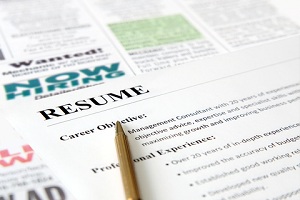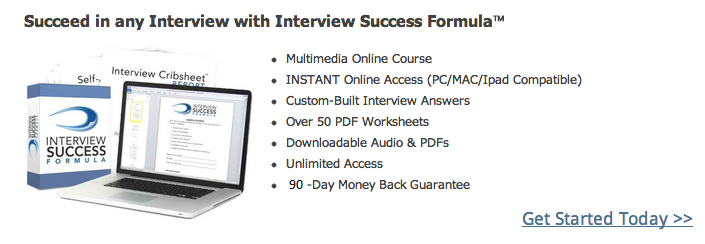 “Sorry, you’re overqualified.” When people get rejected from a job for being ‘overqualified’, they are often never directly asked a question during the job interview. Since this question is rarely spoken aloud, you’ll have to go on offense. Let me explain.
“Sorry, you’re overqualified.” When people get rejected from a job for being ‘overqualified’, they are often never directly asked a question during the job interview. Since this question is rarely spoken aloud, you’ll have to go on offense. Let me explain.
In your upcoming job interviews, you can proactively protect yourself against being labeled overqualified with a number of strategies.
First, you need to know which definition is being applied to you. Then you can follow the right approach in your next interview.
Overqualified Scenario 1:
The interviewer thinks: “The applicant is just taking this job because he is desperate. As soon as something better comes along, this person will split.”
This is one of the toughest scenarios to take on, especially because it may actually be true. If you find yourself in this situation, you would do well to express commitment and enthusiasm to this specific organization. For a well-known firm, like Coca-Cola, it’s easy to say, “I have always wanted to work for Coke, so this is a dream opportunity for me.”
For a not so well known firm, you will have to do some extra legwork to prove you know the firm well and believe it’s a strong fit for you. This includes talking to current and past employees or customers of the company. Ultimately, you want to walk into the interview and say, “After talking to Mr. A, Mrs. B, and Dr. C, I learned your organization was a really strong fit for me and somewhere I would enjoy staying for a long time.”
In addition, if you can express enthusiasm for the work of the job itself, and why this work is such a good match for where you are now, it can also support your case.
Overqualified Scenario 2:
The interviewer thinks, “This type of work is too basic for the applicant. She will quickly get bored, or she’ll feel certain types of work are beneath her and will become resentful.”
I knew a person who spent 20 years running a small business, sold it, and then pursued her dream job as a flight attendant. Unfortunately, she found herself being turned down for jobs because of this concern. The airlines thought she might not be content handling trash from passengers after her prior success.
If you fall into this camp, there are several approaches you can take. First, you want to express enthusiasm for the work. Second, if there are specific issues that may be a point of concern, you can address them head-on during the interview. Third, you can also play down past experiences so that you look a bit less accomplished or intimidating.
For instance, for the flight attendant, she could answer this question in her interview with something like: “I understand that this job isn’t always glamorous. As a mother of three, I have gotten used to cleaning up after other’s messes and managing temper tantrums. And as a flight attendant, facing issues with passengers isn’t a problem for me, and the opportunity to spend my days in the air is a dream come true.”
Overqualified Scenario 3)
The interviewer thinks, “This person is after my job, and if I hire him, I could find myself unemployed.”
If you seem like a hungry, hard-working person, this is something that your interviewer may think but never say to you. The best defense in this situation is to show that you are a team player who supports those you work for. You want to get your boss’s job by helping your boss get promoted.
A great question to ask in this situation would be, “How can I help you earn an A+ in your next performance review?”
Overqualified Scenario 4)
The interviewer thinks, “This person across from me is a fair bit older than I am. Can I trust them to stay up to speed on current trends and be hungry for new challenges?” If you are an older worker, it is critical that you are knowledgeable of the most recent trends in your industry. Read up on what's happening. Talk to other people in your field. Show that you are aware of the trends in your industry.
In whatever scenario you find yourself, preparing a strong defense before your next interview will serve you well. You may find that you will have to work in this information to your responses to other questions. That way the interviewer won’t worry whether you are out of touch.
One final point:
If you believe the interviewer is very concerned about you being overqualified, you may want to address it head-on: “Look, I know you may be worried that I am overqualified, here are the reasons why this job is a good fit for me, and you can trust me to be a dependable part of your team.”


